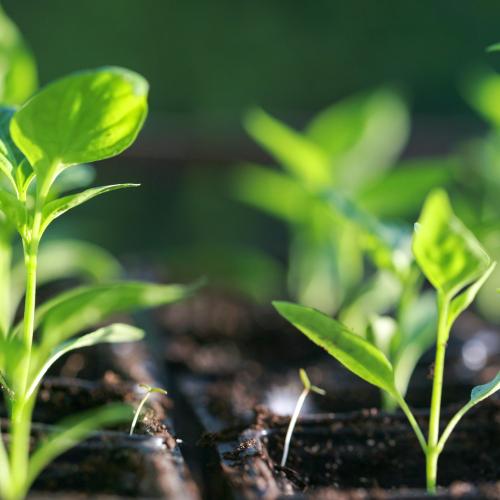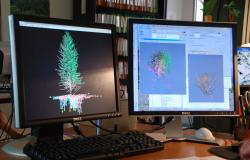Research professions


Research in these disciplines is focused on living organisms and the environments in which they are found. Around 75% of INRAE researchers explore questions in biology, ecology, and the environmental sciences. Depending on their specific field, these scientists are experts in cell biology, developmental biology, the medical sciences, genetics, genomics, neuroscience, bioinformatics, systems biology, evolution, and ecology.

Research in these disciplines is focused on the transformation of diverse materials. More specifically, INRAE research explores the quality of raw plant and animal materials and how they can be transformed into products, foods, and processed materials that serve multiple functions. Depending on their team's focus, researchers must be proficient in chemistry, biochemistry, biophysics, process engineering, and/or chemical physics.

Engineering science is a discipline that utilises knowledge from a variety of scientific fields (mathematics, physics, and chemistry) and a variety of technological fields (mechanics, informatics, and electronics) to study and develop complex technological tools. INRAE researchers carry out this work to improve our understanding of living organisms and the environment; develop more efficient diagnostic tools and processing methods; and both model and map biological and environmental processes.

Les sciences du numérique (calcul et informatique scientifiques) ont pour objet la construction de modèles mathématiques et de méthodes d'analyse quantitative pour analyser et résoudre des problèmes scientifiques...

The humanities and social sciences encompass all the disciplines that study humans and human society (e.g., human activities, behaviours, life styles, and societal shifts). INRAE researchers in the humanities and social sciences primarily focus on geography, economics, history, and sociology. More specifically, they explore how agricultural systems and food systems function and examine the economic and social changes in these systems over time; the goal is to use this knowledge to inform public discussions and decision-making. Another objective is to facilitate transitions towards more sustainable agricultural systems and food systems and to institute new ways of managing interactions between agricultural systems and regional identity.
